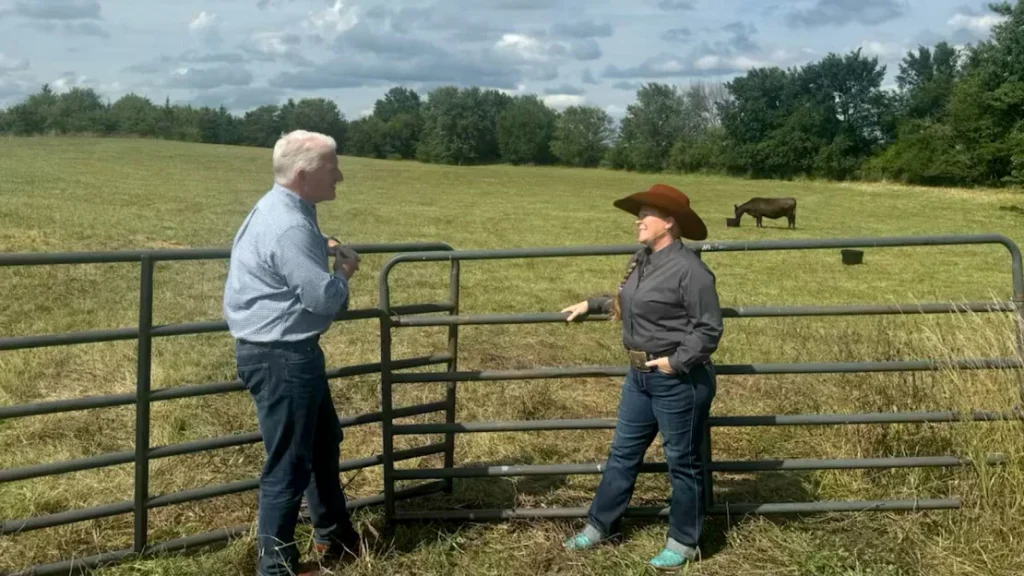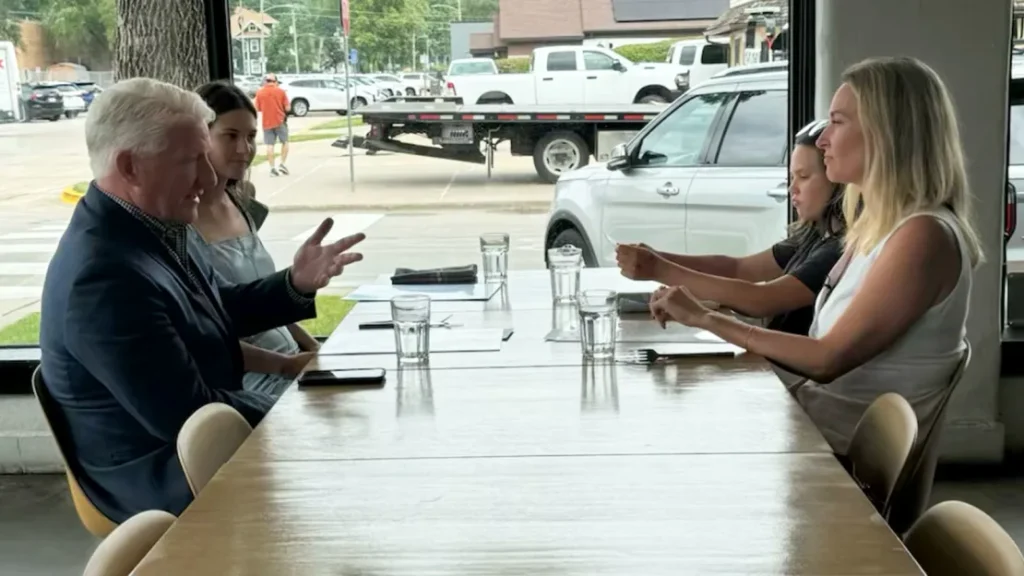Why Iowa Republicans who once opposed Trump are ready to vote for him
Shanen Ebersole is voting for Donald Trump. With plenty of reservations, but zero hesitation.
“It’s definitely a vote for Trump,” Ebersole said. “I’m happy doing that with the choices that we have. I don’t think there is any way I could vote any other direction.”

Ebersole was a Nikki Haley supporter when we first met before the Iowa caucuses. Trump won 59% of the caucus vote in conservative Ringgold County; Ebersole was one of just 16 votes for the former South Carolina governor.
Once Trump locked up the GOP nomination, Ebersole thought a bit about voting third party. But her maverick streak has limits. Her family and her farm come first, so she came home to Trump.
“Because we have to put the American people first,” she said in an interview along the fence line of the Ebersole cattle farm. “I think that the policies that have been in place in the Harris-Biden administration — they hurt this. They hurt our land and they hurt the people of middle America the most.”
Ebersole is part of our All Over the Map project, an effort to track the 2024 campaign through the eyes and experiences of voters who live in key battlegrounds and are members of critical voting blocs or areas in those states.
Iowa was an early 2024 battleground — the first test of whether Trump’s grip on the GOP had been loosened by his 2020 loss, his conduct on January 6, 2021, or any of the myriad criminal and civil legal proceedings he has faced since leaving the White House. Trump won the caucuses with 51% — the beginning of a march to the nomination that proved his grip on the party remains quite firm but also exposed important weaknesses.
One was among Republican women like Ebersole — those who supported Haley or other GOP contenders because they object to Trump’s combative and often caustic tone and, in many cases, see him as wandering too far from the conservative principles that drew them to the Republican Party.

Iowa, of course, is not considered a battleground in the general election this year. Ebersole’s “pretty simple” decision to support Trump despite her reservations helps explain why.
In the 12 presidential elections dating back to 1976, Iowa was evenly split in its choice for president. But Republicans have dominated of late. Trump won in both 2016 and 2020. Both of the state’s US senators are Republican, as are six of Iowa’s seven statewide constitutional offices.
Voters who say life was better under Trump fear Democrats have shifted too far left
Ebersole shared a view quite common here: that the Democratic Party is trending more liberal, more coastal, and more in favor of government mandates in climate and land policies.
“I’m not saying that there are not things we can do to improve,” Ebersole said. “But if you talk to a lot of us, we’re already doing things. There’s a huge regenerative movement here in the Americas by choice, not my mandate. I think that is the main thing that matters in politics — that we get to choose. We’re not being mandated to choose. … We just want to live in the middle of nowhere and raise cows and feed our neighbors across the country.”
Ebersole said Trump’s trade policies were better for her business.
“It was much harder to import beef,” she said. “Now most meat that you eat, on the American grocery store shelves, isn’t American beef, and that really concerns me.” She sees Vice President Kamala Harris as more liberal — and more likely to favor activist government — than President Joe Biden.
“She is willing to push her agendas on those of us who live a totally different life,” Ebersole said, tying Harris to California’s policies. “Our California rancher friends are completely decimated by the policies and the government. Not by their weather conditions, not by any of those things, but by the government policies.”

Harris was the California attorney general from 2011-2017 and has worked in Washington since becoming a senator and now vice president.
The conversation is different here than in the swing states. On recent visits to Arizona and Pennsylvania, for example, some of our Republican voters who are not Trump fans said they would give Harris a chance to make her case. But in Iowa, the Republicans in our group were harshly critical of the vice president and more comfortable with coming home to the GOP despite issues they may have with Trump and his most vocal MAGA allies.
“Most of the people that vote for Trump are just quiet people who want to live our own lives in our own place,” Ebersole said. “We’re willing to tell those people to quiet down a bit.”
It may seem an odd time to visit Iowa, given its status as a solid red state, when considering each candidate’s strategy to win 270 electoral votes. But we wanted to better understand why those who were so critical of Trump at the beginning of the campaign cycle are so comfortable supporting him now. We wanted a firsthand look at how our Iowa group — the first one we visited in August 2023 — views the race now that Harris has replaced Biden atop the Democratic ticket and chosen a Midwest governor, Tim Walz of Minnesota, to be her running mate.
“He’s trying to figure out how to deal with her,” Chris Mudd, a businessman from Cedar Falls, said of Trump, whom he ardently supports. “I think he spends too much time bashing and complaining. … I think he’ll catch his stride. I think he will get back on his horse.”


